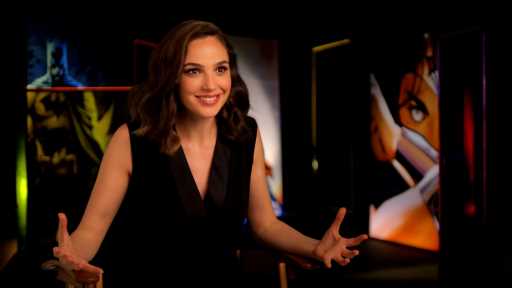
It’s hard to know who “Superpowered” is for.
The newly rebranded streamer Max presents a three-part documentary on the history and impact of DC Comics — not coincidentally, an intellectual-property concern with films like “Won-der Woman” and “Aquaman” that are made by Max corporate sibling Warner Bros. “Superpowered,” coming in the midst of a yearlong celebratory jag as Warner Bros. marks its 100th anniversary, is too superficial to satisfy core fans, but so automatically assumes viewer buy-in that it won’t create any new converts.
Directed by Leslie Iwerks and Mark Catalena and narrated by Rosario Dawson, “Superpowered” follows an odd structure, where a linear march through the history of a company that began in the 1930s is studded with promotional interviews for recent endeavors. We jump from footage of the campy late-1960s “Batman” TV show to an interview with director Matt Reeves discussing his 2022 film “The Batman” back to the ’60s. Dawson intones over footage of the Vietnam War and Civil Rights-era protests that, given national turmoil, “the DC characters seemed tone-deaf.” And the spirit of tone-deafness is kept alive by such transitions.
The series edges up to interesting concepts, nudging them and then skittering away. One comics artist, a throwback to a bygone era of art and of speaking in public, notes that he didn’t like drawing superheroes because “they’re a little flamboyant for me.” Eek! Time to talk about how the Flash shared the optimism of the Space Age! Television superproducer Greg Berlanti, of DC series from “Arrow” to “Batwoman” (and an EP on “Superpowered”) talks about being drawn to superheroes’ operating under aliases as a young gay man learning to code-switch; we don’t dwell here, but it’s the first time any interview subject from the contemporary entertainment industry has gotten real.
Speaking of which, one wouldn’t expect this series to cover the recent travails of DC films at the box office, and it of course doesn’t, but a junkety interview with Zachary Levi in which he says that “Shazam! Fury of the Gods” was “one of my favorite sets I’ve ever been on” falls limply in the face of that movie’s underperformance just this year. The history of comics is rich and redolent with themes from racism to censorship, themes “Superpowered” only touches on. Why are we wasting time hearing how much fun Levi had flopping?
“Superpowered” presents what may be the best argument for DC — its own success, earned by perpetual reinvention. That old “Batman” series, starring Adam West, is presented as both a camp classic and a template: “Each rendition of Batman,” Dawson tells us, “could have a different tone.” True enough: One need look no further than Joaquin Phoenix’s and Jared Leto’s Jokers, uneasily coexisting at the multiplex, to see that. So why is “Superpowered” so devoid of any tone but investors-conference corporate boosterism?
Narrating one of various low points in DC history, Dawson tells us that making superheroes relevant again “looked like a job for fans.” (Haven’t fans been empowered enough?) This statement seems a sort of plea. From the “Shazam!” sequel to “The Flash,” DC, which has never shared the consistent vision or the thoughtful planning of its Disney-owned counterpart Marvel, has lately flatlined. Here, Max presents a strung-together list of fun moments that may justify how much time fans have spent with the characters to this point, and convince them not to lose interest. To care enough to sit through all three hours, though, one would have to be an uncommonly committed die-hard in the first place. That unfortunate fact makes “Superpowered’s” true audience clear: It’s made for Warner Bros. executives, as a reassurance that they’re on the right track, and that any faltering in their fortunes is just a sign that fans aren’t appreciating them hard enough.
“Superpowered: The DC Story” debuts Thursday, July 20, on Max.
Read More About:
Source: Read Full Article